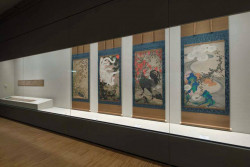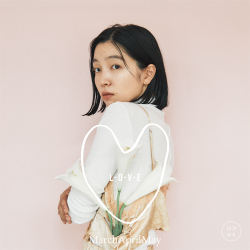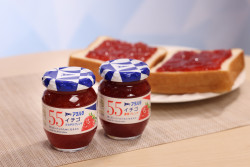
Originally published on metropolis.co.jp on December 2012

If you had Shutoku Mukai practicing next door, you’d probably be driven to distraction, too.
“My neighbor told me to be quiet, but I kept practicing. Finally, he said he would sue me,” recalls the front man of renowned Japanese alt-rock band Zazen Boys. “So I had to look for somewhere else.”
Metropolis sat down on a sultry autumn day in Mukai’s Matsuri Studio in the basement of a nondescript building not far from Shinjuku to hear about the creation of his band’s first album in four years.
Stories explodes with the herky-jerky rhythms, angular melodies and quirky lyrics that characterize the 39-year-old veteran Mukai’s music. Listeners will instantly recognize his imprint all over the album, the band’s sixth in a decade existence.
After four years, why an album now? “I have my own label so have to decide my own release schedule,” Mukai reasons against a backdrop of his beloved Fender Telecaster guitars. “But I hadn’t decided anything and four years went by.”
Compared to their last disc, Stories returns the emphasis to the torrid instrumental interplay between Mukai and Sou Yoshikane on guitars, Ichiro Yoshida on bass and Atsushi Matsushita on drums. “Zazen Boys 4 had a lot of programmed songs,” he says. “With Stories I wanted to reaffirm the raw Zazen Boys sound.”
The title refers not to specific stories told on the album (there isn’t much on the album you would recognize as a traditional story) but to Mukai’s wish to provoke listeners’ imaginations. One of the catchier songs, for instance, is called simply “Potato Salad.”
“You could think of it as a kind of metaphor, or nostalgia for Mom’s tasty cooking—but that would be thinking too much,” he laughs. “My lyrics tend to be sort of stream of consciousness, and they generally don’t make sense.”
Mukai adds that he often doesn’t know their meaning himself. “I try to just put my songs out there,” he explains. “I want them to be beyond explanation, but hopefully a true expression. I try to provoke different reactions—some might feel happy, some sad. I want them to feel all sorts of emotions.”
With the success of his previous band Number Girl, Mukai was, along with artists like Shiina Ringo, part of the wave of latter-era “mentai rock” (so called for Fukuoka’s local fish-egg delicacy) that put Kyushu firmly on the rock map. Why did he leave for Tokyo?
“When I was in Fukuoka, I was really idealistic. I had this fantasy that we’d be able to stay in Fukuoka and be heard around the world,” Mukai says. “But it turns out that Japan is very centralized, and if you don’t operate from the center it’s hard to be heard.”
With Number Girl and now Zazen Boys, Mukai has had the chance to tour North America several times. But he rates Tokyo’s scene better than those of the American and Canadian cities he visited.
“New York bands all seemed to sound the same,” he says of his latest trip. “All the bands in Brooklyn had female singers and sequencers with a punk-funk feel. It seemed a bit limited. The freshest sounds right now may be coming out of Tokyo.”
And the inevitable question: do they practice zazen, the form of Zen Buddhist meditation referenced by their band name?
“Before we play we do a quick meditation session backstage to calm ourselves and focus our concentration,” Mukai answers. “It’s not really true zazen—I’m not a hardcore Buddhist or anything. We chose the word ‘Zazen’ because we liked all the z’s in it. We even thought to spell ‘Boys’ with a ‘z’, but decided it would be a bit too much.”







